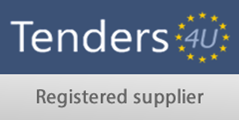Information
Why should you get your system cleaned?
Did you know?
Around 70% of fires in commercial kitchens arise in poorly maintained extract ventilation systems due to fat and grease deposit build up.
Grease build up also causes an environmental health hazard by providing a breeding ground for bacteria.
You can reduce these risks by carrying out regular cleaning of your kitchen extraction and ventilation systems.
Fire risks
Filters are unable to remove all traces of grease and dirt from the air. Over time, a layer of grease and dirt builds up on the surfaces of ventilation ducts, canopies and extractor fans. This is a major fire risk.
Fires within the ductwork are very difficult to stop. Ductwork is often inaccessible, and fire may break out of the ductwork into other buildings. Damage is often serious and businesses are forced to close.
Why carry out cleaning and maintenance?
- To reduce the risk of fire.
- To prevent the build-up of grease deposits and bacteria within your kitchen extraction system.
- Under the Regulatory Reform (Fire Safety) Order (2005), your extract systems need to be included in your fire risk assessment with action taken to minimise any potential fire risk to buildings and occupants.
- Failure to carry out proper cleaning and maintenance could lead to a breach of Environmental Health Regulations and could invalidate your fire insurance policy.
How often should your system be cleaned?
Your canopy extract system cleans should be planned by how frequent the system is used you can refer to the chart on this page to determine this.
Where your cooking process involves fat frying or wood/charcoal burning, cleaning may need to be more frequent.
Extract hoods and filters should be cleaned and degreased daily, or in accordance with manufacturers recommendations. Cooking should never be carried out unless there is a filter in place.
The Regulatory Reform (fire safety) Order (2005)
In the United Kingdom fire safety was previously covered by about 70 pieces of the fire safety legislation, the principal ones being the Fire Precautions Act (1961) and the Fire Precautions (workplace) Regulations (1997/1999). In (2001) it was therefor decided the legislation needed to be simplified. This was achieved with the Regulatory Reform (Fire Safety) Order (2005) in England and Wales.
The order is designed to provide a minimum Fire Safety standard in all non-domestic premises with a few expectations. If it is a workplace it designates the employer the Responsible Person (RP). If any other person has control to some extent then they could have duties under the order. If it is not a workplace then any person having control to some extent or the owner can and can be designated the Responsible Person. The persons, or a person acting on their behalf, are required to carry out certain fire safety duties which include ensuring the general fire precautions are satisfactory and conducting a fire risk assessment. If more than five persons employed it has to be a written fire risk assessment.
TR19 Regulations
The TR19 is a standard that was defined by BESA as a way to standardise duct and kitchen extract cleaning systems. Developed in (1988), it has become the standard to which most insurers and building engineering service sectors as the standard to match when performing ductwork cleaning operations.
TR19 regulations are the guidelines that govern good practice for the cleaning of ventilation ducts. TR19 guidelinesshould be followed by anyone carrying out kitchen duct cleaning services.


